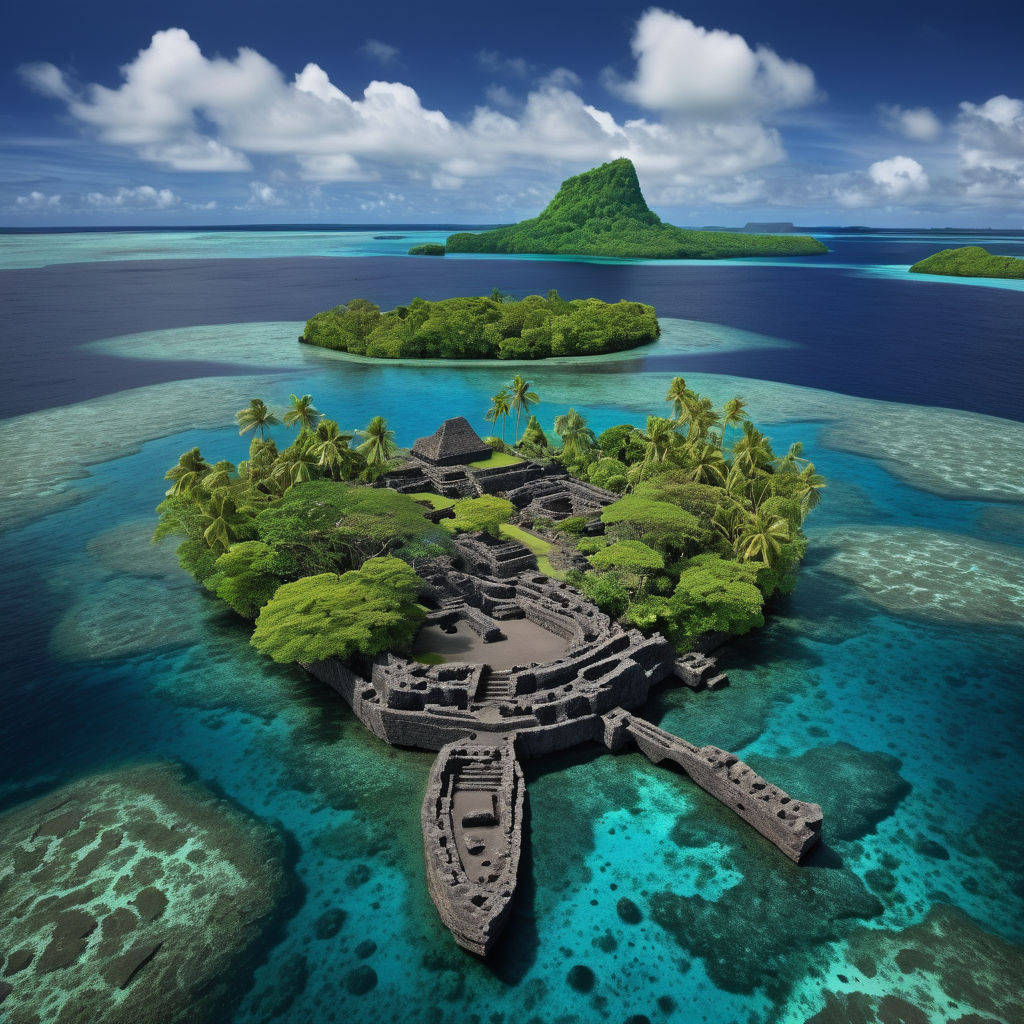Introduction to Micronesia: A Pacific Island Nation of Rich Cultural Heritage
Exploring the Unique Cultures and Traditions of the Federated States of Micronesia

Introduction to Micronesia
The Federated States of Micronesia (FSM) is a Pacific island nation located in the Western Pacific Ocean. It consists of four states—Yap, Chuuk, Pohnpei, and Kosrae—spread across more than 600 islands. These islands are grouped into four main island groups: the Caroline Islands. The capital of Micronesia is Palikir, located on the island of Pohnpei. Each state has its own unique cultural heritage, yet they share a common history and tradition that bind them together as a nation. The country boasts a rich cultural heritage, with traditional dances, music, and crafts playing a central role in everyday life. The people of Micronesia are known for their seafaring skills, a testament to their intimate connection with the ocean.
Cross-national and Cross-cultural Understanding
The people of Micronesia have historically engaged with other cultures through trade, navigation, and migration. This long-standing tradition of interaction with diverse cultures has fostered a deep sense of respect and understanding for different ways of life. Micronesians are generally open and welcoming to foreigners, valuing the exchange of cultural ideas and practices. Significant cultural exchanges take place through educational programs and international partnerships. The College of Micronesia, for instance, has partnerships with universities and institutions around the world, promoting student and faculty exchanges that enhance cross-cultural understanding. Additionally, organizations such as the Peace Corps have a long history in Micronesia, working on community projects that foster cultural exchange and mutual understanding. Micronesia is also a member of various regional and international organizations that promote cross-cultural dialogue and cooperation. These include the Pacific Community (SPC) and the United Nations, where Micronesia actively participates in discussions and initiatives aimed at fostering global understanding and cooperation.
Interactions and Social Dynamics
Interactions between Micronesians and foreigners are typically characterized by warmth and hospitality. Social behaviors in Micronesia emphasize respect, humility, and community. These values are deeply ingrained in the culture and influence how Micronesians interact with visitors. Communication styles in Micronesia are often indirect and nuanced, reflecting a cultural preference for harmony and avoidance of conflict. Foreigners are expected to be mindful of these communication styles and show respect for local customs and traditions. Greetings are important in Micronesian culture, and it is customary to greet everyone in a room or gathering, regardless of their status. Multilingualism plays a crucial role in facilitating interactions between Micronesians and foreigners. While English is the official language and widely spoken, each state also has its own native language, such as Chuukese, Pohnpeian, Yapese, and Kosraean. The ability to communicate in multiple languages enhances cross-cultural interactions and helps bridge cultural gaps.
Views on Dating and Relationships
Dating and relationships in Micronesia are influenced by both traditional values and modern influences. Attitudes towards dating foreigners are generally open, especially among the younger generation, who may be more exposed to global cultures through media and education. However, traditional values still play a significant role in shaping societal views on relationships. Cultural expectations in dating and relationships include respect for family and community values. Family approval is often sought in relationships, and maintaining harmony within the family is considered important. Public displays of affection are generally discouraged, reflecting the modesty and privacy valued in Micronesian culture.
Marriage and Family
Marriage in Micronesia is seen as a union not just between two individuals but also between families. Marrying foreigners is generally accepted, though it may come with certain expectations and considerations. Legal procedures for marriage in Micronesia are straightforward, but cultural practices and family approval play a crucial role in the process. In cross-cultural marriages, it is common for couples to incorporate traditions from both cultures, creating a unique blend of customs and practices. For instance, traditional Micronesian wedding ceremonies may be combined with Western elements, reflecting the diverse backgrounds of the couple. Family support and acceptance are crucial in cross-cultural marriages, as they help the couple navigate cultural differences and build a harmonious family life.